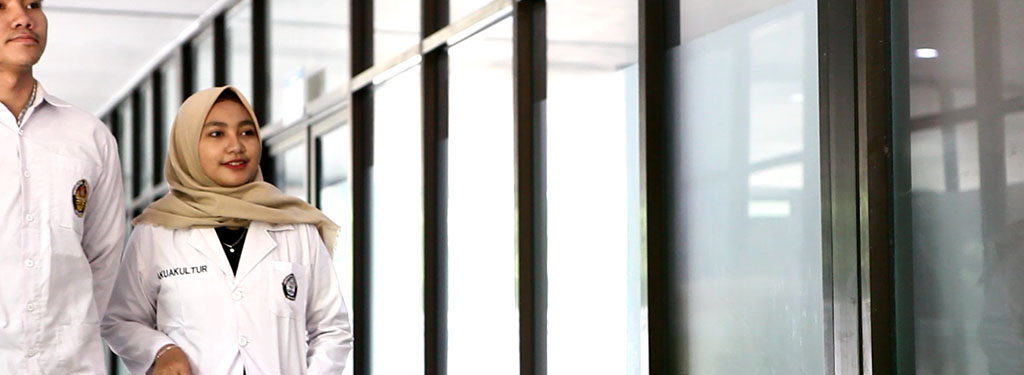[et_pb_section fb_built=”1″ admin_label=”section” _builder_version=”4.3.2″ custom_padding=”0px||0px||false|false” locked=”off” collapsed=”off”][et_pb_row admin_label=”row” _builder_version=”4.3.2″ background_size=”initial” background_position=”top_left” background_repeat=”repeat” custom_padding=”0px||0px||false|false”][et_pb_column type=”4_4″ _builder_version=”3.25″ custom_padding=”|||” custom_padding__hover=”|||”][et_pb_text _builder_version=”4.3.2″ text_orientation=”justified” custom_padding=”0px||0px||false|false” hover_enabled=”0″]
FPIK, SEMARANG – Three study programs (Prodi) at the Faculty of Fisheries and Marine Sciences (FPIK) Diponegoro University (UNDIP) are targeted to achieve international accreditation. Currently all study programs at FPIK, both undergraduate (undergraduate), postgraduate (master) and postgraduate (doctoral), all have accreditation A status, so we are only one step away from getting international accreditation.
Dean of FPIK UNDIP, Prof. Ir. Tri Winarni Agustini, M.Sc., PhD., Has targeted that in no later than two years, three study programs at FPIK can achieve international accreditation. “But in principle, the sooner the better,” said Prof. Tri Winarni Agustini, Thursday (22/10/2020).
Even though it has set a target time, for certainty what study program will achieve international accreditation depends on the final process because it depends on the accreditation agency. Moreover, all are still in process with high dynamics. “What is certain is that the one most ready to meet the existing requirements. “The priority is for S1 first, especially for the Aquaculture Study Program, the Marine Science Study Program and the Oceanography Study Program,” she said.
Currently, there are 10 study programs in FPIK, including six undergraduate study programs, two master programs, and two doctoral programs. For undergraduate programs (S1) there are Aquaculture Study Programs, Aquatic Resources Management, Marine Science, Oceanography, Capture Fisheries, and Fishery Product Technology. For S2 study programs, there are Masters in Marine Science (MIK) and Masters in Coastal Resources Management (MSDP). Whereas for the S3 (doctoral) FPIK UNDIP has a Marine Science Doctoral Program and a Coastal Resource Management Doctoral Program.
[/et_pb_text][/et_pb_column][/et_pb_row][et_pb_row _builder_version=”4.3.2″][et_pb_column type=”4_4″ _builder_version=”4.3.2″][et_pb_image src=”https://fpik.undip.ac.id/wp-content/uploads/2020/12/IMG_9046.jpg” align=”center” _builder_version=”4.3.2″ hover_enabled=”0″][/et_pb_image][/et_pb_column][/et_pb_row][et_pb_row _builder_version=”4.3.2″][et_pb_column type=”4_4″ _builder_version=”4.3.2″][et_pb_text _builder_version=”4.3.2″ text_orientation=”justified” custom_padding=”0px||0px||false|false” hover_enabled=”0″ locked=”off”]
UNDIP is a university that has the most comprehensive marine and fisheries study program in Indonesia, as well as a pioneering university to develop marine science. One of them is the Oceanography Study Program which only exists at UNDIP and ITB, although this knowledge has long been institutionalized in the Indonesian Institute of Sciences (LIPI). UNDIP marine science is also one of the pilot study programs that were started by UNDIP with several other National Universities (PTN). The Dean of FPIK said that the interest of prospective students to study marine and fisheries science tends to increase from year to year. In fact, FPIK can be said to be one of the favorite faculties in both the SNMPTN (National Selection for State Universities) and the SBNPTN (Joint Selection for State Universities).
The high interest in studying marine and fisheries science is encouraging, because it is relevant to the wealth of Indonesia, where two-thirds of its territory is the sea. Therefore, it is UNDIP’s commitment to produce competent fisheries and marine scholarships. As for the S2 level, FPIK UNDIP is committed to producing graduates who are able to collect, process, analyze and interpret data as well as develop and apply and socialize planning concepts and techniques as well as monitoring and evaluation of integrated management of marine resources. Meanwhile, for doctoral level, he will produce doctorates who are able to develop the concepts of science, technology and research, and are able to work in the field of marine science management and coastal resource management with an interdisciplinary approach.
As a form of commitment to human and scientific development, students studying at FPIK are not only given learning theories about fisheries and marine affairs, but also practice, including entrepreneurship, so that they can open businesses and open jobs when graduated. “Currently, our graduates have entered in all lines. Whether it’s the State Civil Apparatus (ASN), taking part in industry, factories, private companies, and entrepreneurship by opening up jobs for others, “said Tri Winarni Agustini. (Source: www.undip.ac.id).
[/et_pb_text][/et_pb_column][/et_pb_row][/et_pb_section]

